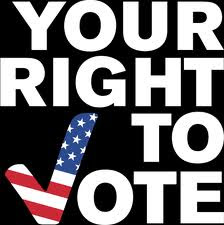 During the 2011-12 legislative sessions, states enacted an unprecedented number of laws restricting access to voting. Voter ID laws are the most common type of restriction. Ten states — Alabama, Georgia, Indiana, Kansas, Mississippi, Pennsylvania, South Carolina, Tennessee, Texas, and Wisconsin8 — now have restrictive voter photo I.D. laws. A new report released by the Brennan Center for Justice within New York University finds that these new laws create an obstacle to voting for more than 10 million eligible voting age citizens who do not have a photo I.D.
During the 2011-12 legislative sessions, states enacted an unprecedented number of laws restricting access to voting. Voter ID laws are the most common type of restriction. Ten states — Alabama, Georgia, Indiana, Kansas, Mississippi, Pennsylvania, South Carolina, Tennessee, Texas, and Wisconsin8 — now have restrictive voter photo I.D. laws. A new report released by the Brennan Center for Justice within New York University finds that these new laws create an obstacle to voting for more than 10 million eligible voting age citizens who do not have a photo I.D.
Many American citizens lack the documentation these laws require. In fact, more than 1 in 10 voting-age citizens do not have current, government-issued photo ID. Some populations lack these documents at even higher rates: 25 percent of African-Americans, 16 percent of Hispanics, and 18 percent of Americans over age 65 do not have such ID. Data supplied by Texas and South Carolina also show that poor and minority voters are substantially less likely to have the kind of photo ID these states require.
Of course, 9 in 10 Americans do have photo IDs. These documents are used to drive cars, board airplanes, enter government buildings, and purchase various consumer products. Accordingly, many Americans might find it difficult to understand how so many of their fellow citizens lack such basic documentation. They might also assume that it must be relatively easy for these citizens to get photo ID. After all, all states with restrictive voter ID laws provide some way for voters to obtain a free one. However, making the ID itself free does not address the significant obstacles that can make it difficult for Americans who lack the required photo ID to obtain one. Many of these voters do not have a car and will have to rely on public transportation — where it exists — to travel to a far-away government office. That office may be open only a few hours a week, and rarely on weekends or in the evening. Voters may have to miss work or arrange for childcare to make the trip. And even if they can make it there, they may not be able to afford the costly supporting documentation — such as birth certificates or marriage licenses — required to apply for photo ID.
The Brennan Center report describes the burden on Americans who must obtain government-issued photo ID to comply with restrictive voter ID laws. The study demonstrates that many rural, urban, poor, and minority voters must overcome substantial obstacles in order to retain their right to vote.
Read the full Brennan Center report.







